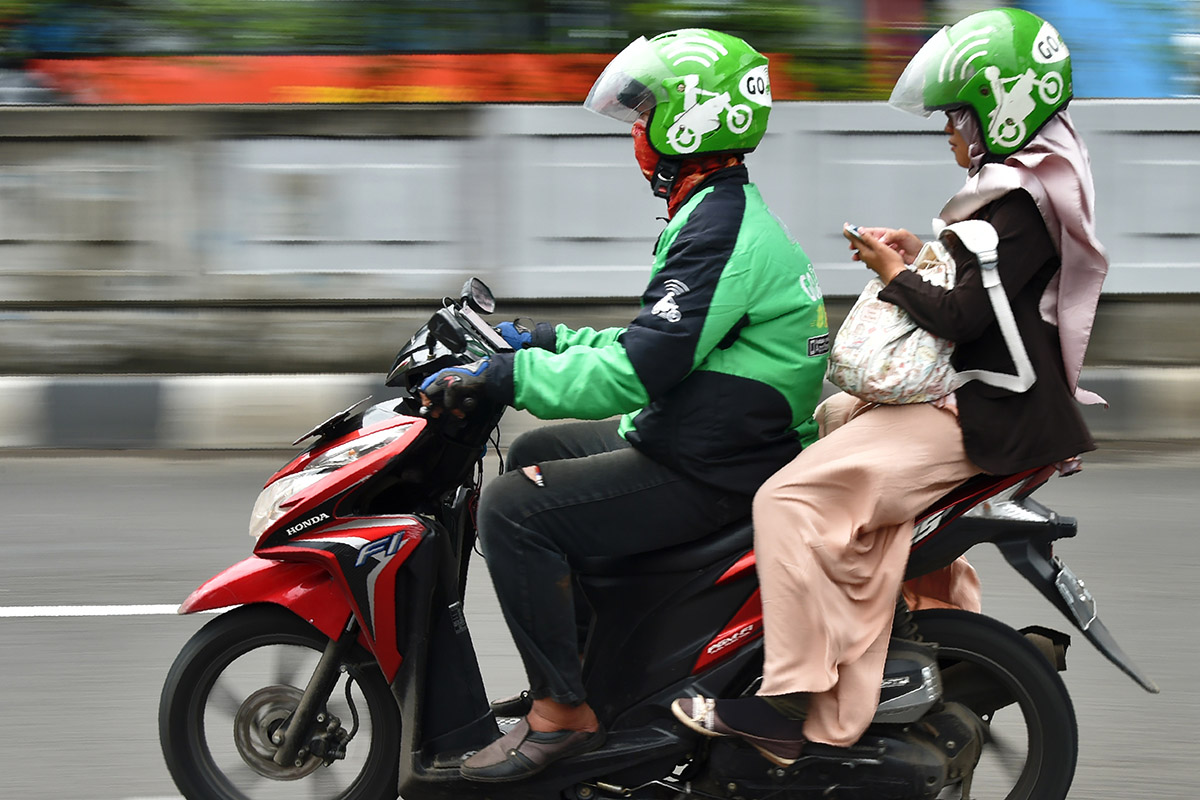Mobile ride-hailing applications are modernising and enhancing urban transportation systems in Southeast Asia. In Indonesia, 250 million people have embraced the use of apps such as Grab, Go-Jek and Uber, according to a 2018 ecommerceIQ (eIQ) - a market research brand dedicated to ecommerce - report. These apps offer targeted GPS services that enable rapid pick-up, easier navigation, quicker journeys, decrease in road congestion and undoubtedly lower pricing compared to conventional ride-hailing methods.
How do these apps work?
The basic function for all three apps is the same whereby a user creates an account on the app and enters their pick-up location and destination. The app then uses the rider’s smartphone GPS to locate a nearby driver, and sends the driver’s contact information to the passenger once the driver has accepted the pickup. Drivers are tracked in real time via their own smartphone GPS as they make their way to the passenger, and the journey itself is also tracked via GPS.
Recent additions to these app include features such as e-wallet payments, food delivery and even ride-sharing with other passengers.
According to a 2018 report by Oxford Business Group, “…these value-added features are possible thanks to each player’s treasure chest topped up with billions of dollars from venture capital funds and massive corporates like Alibaba, Honda, and SoftBank.”
However, with constant addition of features or not, the usage of such ride-hailing apps does come with concerns by those who use them. The 2018 eIQ survey of major cities in Indonesia such as Sumatra, Java, Kalimantan, Sulawesi, Bali, West Nusa Tenggara, and Papua, revealed that safety is a primary factor when choosing which ride-hailing application to use.

Safety first
Although there is a general consensus that pricing and number of promotions are two important factors that affect the use of ride hailing apps, safety still remains the number one deciding factor for consumers. The eIQ study reveals that a majority of respondents (26%), amongst other factors, prioritise safety over other value-added services when choosing which ride-hailing application to use.
Citing the study, according to the Head of Indonesia’s Traffic Police Unit, traffic related deaths in Indonesia have hit worrisome levels at roughly 30,000 per year, a statistic higher than crime related and terrorism caused deaths combined altogether.
“Think of the approximately 28,000 to 30,000 people who die on the road per year because of accidents. Compared to terrorism and crime (the difference) is huge,”, said National Traffic Police Chief, Royke Lumowa.
He also added that the number of traffic incidents in Indonesia is the highest among other Southeast Asian countries.
Safety assurances
To assure both, passengers and drivers, the three ride-hailing apps mentioned above offer insurance coverage in Indonesia. The decision to offer insurance comes from the government which insisted that such stipulations are necessary to create a level playing field and to ensure public safety.
Currently, Go-Jek offers up to US$751 for death and US$375.50 for injury. Grab provides up to US$3,755 for death, and US$1,877.50 for users with severe injuries. On the other hand, Uber provides the most; which is up to US$7,510 for death, and US$751 for injury.
Other preferences
Apart from safety, Indonesians also looked at the ease of finding a driver as a factor in choosing which ride-hailing app to use. Other factors include frequent promotions and discounts, easy navigation within the app, variety of payment options, food delivery options, excellent customer service and loyalty reward points.
One feature that does not interest Indonesian users is e-wallet features. “Nevertheless, payments remain a priority area for senior management looking to build a super app like WeChat in China,” stated the report.
CEO and co-founder of Go-Jek, Nadiem Makarim, said that he wants to separate Go-Pay from the Go-Jek ecosystem during an interview with CNBC, in 2017.
“Payments will be our core focus in 2018, and it will become the year Go-Pay leaves the Go-Jek app ecosystem and goes online and starts fulfilling its mission to be the number one financial inclusion tool for Indonesians to gain access to digital goods and a variety of financial services,” he stated.
All in all, ride-hailing providers in Indonesia and around the region should shift their brand’s direction by placing utmost importance on the quality and safety of passengers and vehicles, followed by other features. To do this, both, online and offline aspects should be taken into account for product development as it affects consumers’ decisions.
